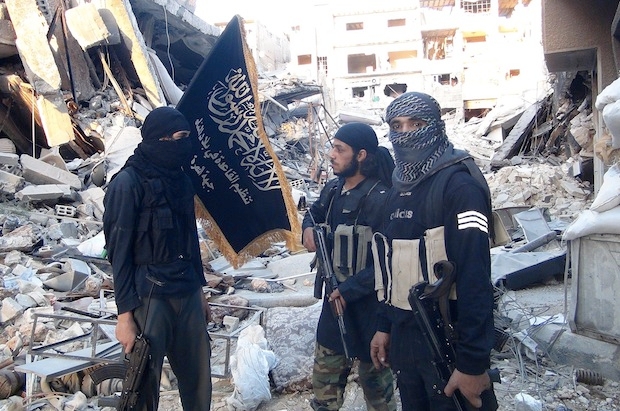What will happen now that the US has launched airstrikes against Isis in Syria? Even though there is no requirement for Parliament to be consulted, it is very difficult for the British government to join without some form of debate and vote in the House of Commons. And this means that a recall of Parliament before it is scheduled to sit on 13 October. The end of this week is most likely, but there remains a debate at the top of the Tory party as to whether David Cameron could win a vote supporting British action. This is surprising, given so many of those who opposed action against Assad last year have publicly said they would support it, and Labour has made many more supportive noises about its own stance. But Cameron is still queasy about trusting Labour, and the mood of his party is pretty volatile at present, with a number of the irreconcilables starting to see merit in causing trouble for him on any matter.
If Cameron can guarantee Labour support, then he could ignore those irreconcilables, who would then melt away. So how confident should he be that Labour would back him? Chuka Umunna said this morning that the party would apply the same criteria as it did in last year’s Syria vote:
‘Obviously the Prime Minister hasn’t determined yet that the UK should get involved. If that is something he does, the Labour party will apply the same criteria to whether or not we choose to support intervention as that which we applied to the proposed Syria action last year. Is there a legal basis to intervene? Is there a plan for intervention? And importantly as well, learning the lessons of Iraq, is there a plan for what happens after? So far, we haven’t been asked to approve any intervention, but we will consider whatever the Prime Minister comes forward with – if he comes forward with anything.’
The party has been very keen to emphasise that last year’s Syria vote was a ‘decision, not a doctrine’ after some feared Labour was no longer in favour of intervention. Public opinion makes things a little easier this time around: 53 per cent of voters told YouGov at the weekend that they would approve of the RAF taking part in air strikes against Isis, with 26 per cent saying they disapproved and 20 per cent not knowing. On the specific question of air strikes against Isis in Syria, the numbers are pretty similar, with 51 per cent approving, 26 per cent disapproving and 21 per cent saying they didn’t know. This should matter less than it does: politicians have a duty to make the case to the electorate, which in this case they may have done purely by taking a while to discuss their options.







Comments